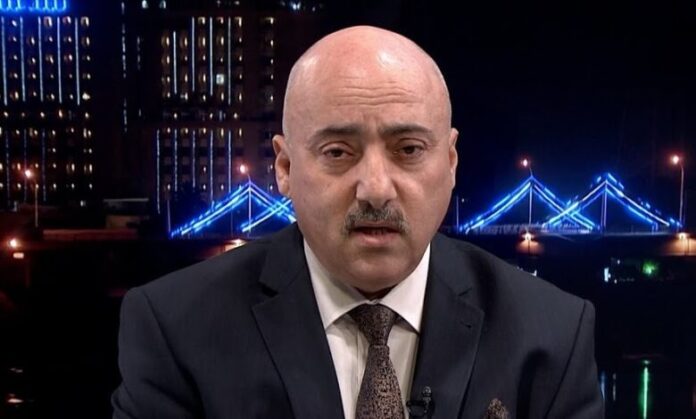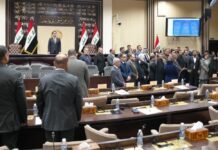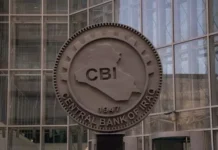Safwan Qusay, an expert in economics, confirmed on Saturday that the Central Bank of Iraq cannot control the exchange rate on its own without collaborating and integrating with the nation’s financial policy. This suggests that the federal ministries do not operate independently of one another and in accordance with the Central Bank’s wishes.
“The Central Bank alone will not be able to control the exchange rate, without coordination,” Qusay said to “Jarida,” despite the bank’s efforts to regulate relationships with international financial transfer operations, Iraqi banks’ relationships with the global environment through international correspondents, and improving the quality of banking service performance. as well as incorporation with financial guidelines.
“The Ministry of Finance and the other federal ministries do not operate with a single-individual mentality,” he continued. “Instead, they work in accordance with the Central Bank’s wishes, which include enforcing fair tax laws, managing border crossings, and potentially advancing our investigation of economic events and demonstrating their accounting in accordance with an accounting system that can accurately depict those events.”
According to him, the Ministry of Finance has internal debts from the Central Bank that need to be paid off quickly in order to increase the value of the Iraqi dinar. “Up until now, working within the budget of items and within a government accounting system is still working within the monetary basis, and does not distinguish between revenues and liabilities, or expenses and assets, and the basic concepts of financial and accounting work,” he continued.
The speaker proceeded to state that “many merchants lack bank accounts and tools for long-term commercial contracts, in addition to the insistence on cooperation, and that tracking the process of movement of goods from the origin to the consumer is still slow and outside the control of the Central Bank.” even if the legitimacy of the equipment acquired from sanctioned nations and businesses has not been proven. There isn’t a set procedure in place for sending these to other nations or businesses financially.
“The Central Bank’s inability to broaden the circle of financial inclusion by stimulating Iraqi dinar holders, through interest placed on current accounts, or discounts accompanying credit card transactions, are all tools that are still needed,” he continued. “The Iraqi citizen’s insistence on not trusting the banking system.” In addition to the private banks that were taken aback by the suspension of the currency selling window and the change to the electronic platform, and in spite of the enormous efforts made by the Central Bank and Iraqi banks—particularly the public ones, which hold 90 percent of the bank balance—there was no system in place for these banks to share the financial data that the international Soviet system required.
“The US Federal Reserve is determined to rid the Iraqi economy of corrupt individuals and restore the caliber of work of the Central Bank and Iraqi banks, as many Iraqi banks have started investing in technology and information sharing to gain international recognition,” he clarified. “International investors have conditions that are consistent with the balance of the Iraqi economy, and prevent Iraqi banks from changing the type of money or laundering money.”





